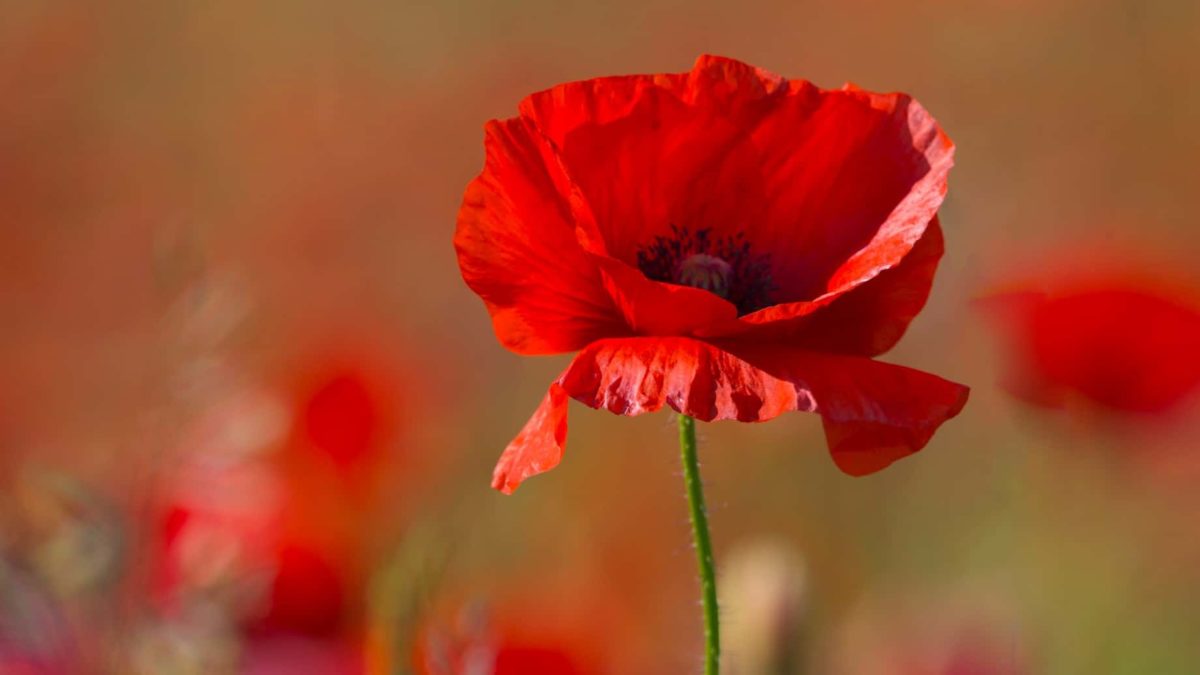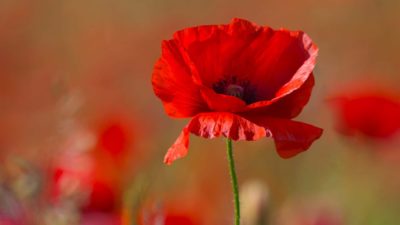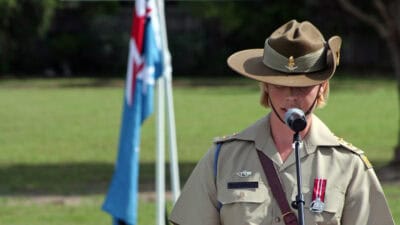
Image source: Getty Images
When Britain declared war on Germany in August 1914, Australia, as a British dominion, was also at war. According to the Australian War Memorial, the next 4 years and three months would become and remain:
"… the costliest conflict in terms of deaths and casualties. From a population of fewer than five million, 416,809 men enlisted, of whom more than 60,000 were killed and 156,000 wounded, gassed, or taken prisoner."
Though the Treaty of Versailles that formally ended the war was signed in June 1919, hostilities ceased on November 11, 1918, at 11am, when an armistice took effect.
As the War Memorial reminds us:
"The 11th hour of the 11th day of the 11th month attained a special significance in the post-war years. The moment when hostilities ceased on the Western Front became universally associated with the remembrance of those who had died in the war. This first modern world conflict had brought about the mobilisation of over 70 million people and left between 9 and 13 million dead, perhaps as many as one-third of them with no known grave. The allied nations chose this day and time for the commemoration of their war dead."
I have had the privilege of visiting both the battlegrounds and the cemeteries of France's Western Front. The immensity of both was overwhelming. The land still contains some of the features carved into it by shovels and munitions. The white crosses—so many white crosses—at the many Commonwealth War Graves are ever-present.
And yet, as both a symbol of hope and remembrance, Flanders poppies grow wild by the roadsides, just as they did more than a century earlier, bringing vividly to mind John McCrae's famous poem.
In Flanders fields the poppies blow
Between the crosses, row on row,
That mark our place; and in the sky
The larks, still bravely singing, fly
Scarce heard amid the guns below.
We are the Dead. Short days ago
We lived, felt dawn, saw sunset glow,
Loved and were loved, and now we lie,
In Flanders fields.
Take up our quarrel with the foe:
To you from failing hands we throw
The torch; be yours to hold it high.
If ye break faith with us who die
We shall not sleep, though poppies grow
In Flanders fields.
Though ANZAC Day has become and remains Australia's pre-eminent day of national remembrance, Australia and its allies also pause on November 11 each year to remember.
Tragically, the day originally known as Armistice Day would be renamed Remembrance Day; the Great War – at the time assumed to be The War To End All Wars – was to be but the first of two World Wars, and other smaller wars would follow.
Like ANZAC Day, Remembrance Day is not a glorification of war. It is not a day to recall military victories or for celebration.
Remembrance Day is a day of solemn commemoration. It is a day for us to do our sacred duty – to remember those who served, suffered and died in the service of our country and those of our allies in war and warlike conflicts.
Like many people around Australia, I will pause for a minute's silence at 11am, as part of that tradition of remembrance. I would encourage you to consider doing the same.
We will remember their service, their courage and their sacrifice.
They went with songs to the battle, they were young,
Straight of limb, true of eye, steady and aglow.
They were staunch to the end against odds uncounted;
They fell with their faces to the foe.
They shall grow not old, as we that are left grow old;
Age shall not weary them, nor the years condemn.
At the going down of the sun and in the morning
We will remember them.
Lest We Forget.





